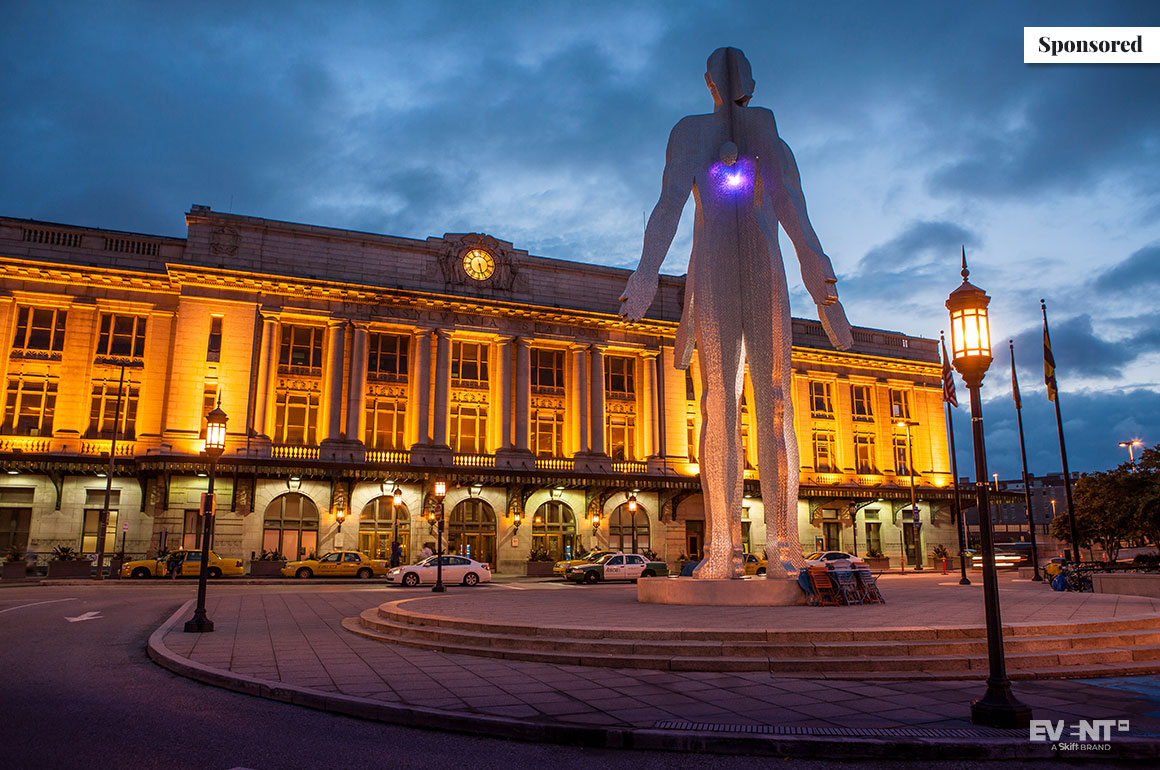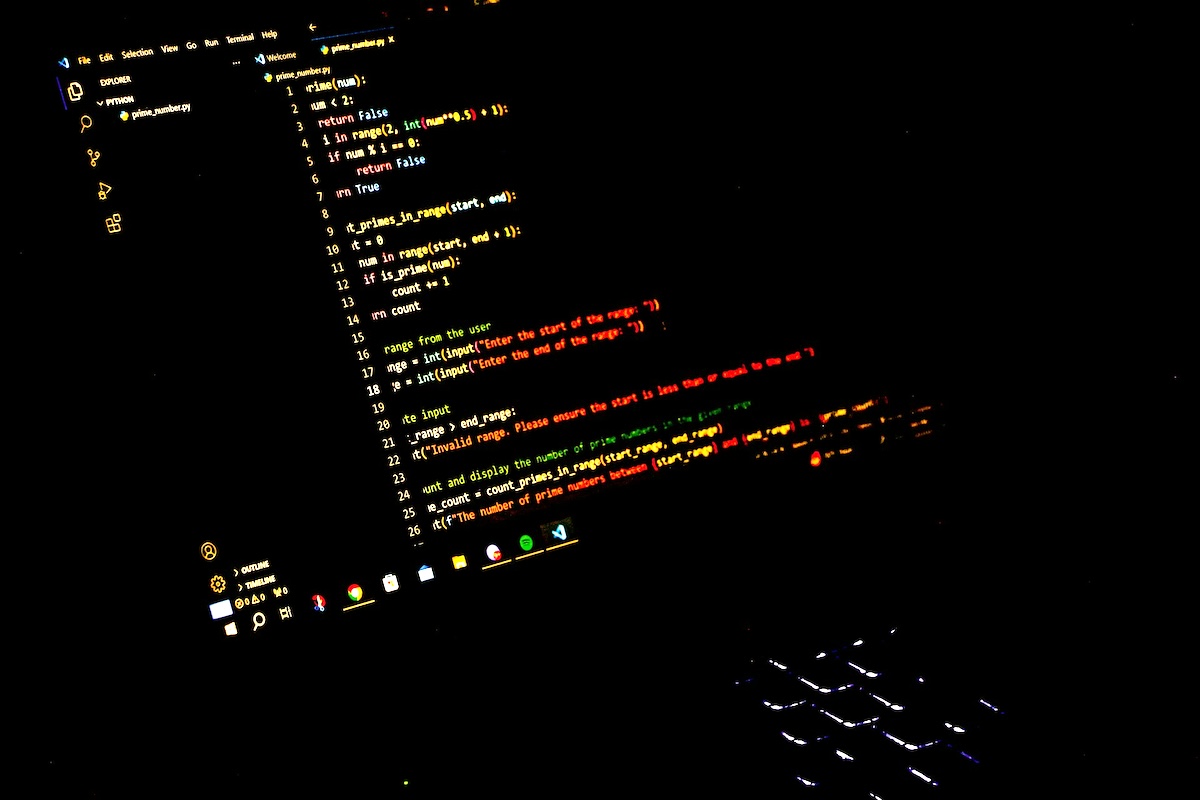Skift Take
New variants and continued uncertainty around travel mean that a destination’s local intellectual capital will remain a key criterion for selection. Destinations with a strong reputation within a given industry will become a hub for that industry’s events.
Credits: Ken Stanek Ken Stanek Photography / ©2013 Ken Stanek/kenstanek.com Ken Stanek Photography
Sponsored by Visit Baltimore
What location do you associate with fine dining? Paris? Naples?
Can you do the same with industries? What comes to mind when you think of aerospace, medicine, or technology?
The slow roll back to live events has been plagued with uncertainty and a sort of “two steps forward, one step back” pace, which has underscored two perhaps overlooked benefits of choosing event destinations that are known for flourishing in a specific area or field: intellectual capital and local attendance.
As in-person events start out smaller and more local, the audience in the destination you choose could make or break your return on investment.
Leveraging a Destination’s Intellectual Capital
A strong professional or academic community that supplies a destination with resident expertise in a given industry is part of its ‘intellectual capital.’ Intellectual capital is an asset that destinations can use to attract events in specific industries, and it manifests in many ways. A local pool of experts on a given topic is a ready source of credible speakers that don’t require travel or accommodation.
A good way to identify destinations with relevant intellectual capital for your event is to start by researching prominent institutions. For example, Baltimore’s Johns Hopkins School of Medicine is a leading medical institution around which a well-established medical community thrives.
A destination marketing organization (DMO) is a good go-to resource for accessing a destination’s intellectual capital. They should not only be well-versed in what their city offers but also be able to connect you to key industry contacts and academic resources.
Among Visit Baltimore’s contacts is Flavius Lilly, a professor and gerontologist who serves as the vice provost of University of Maryland’s graduate school, who recently consulted with organizers of a medical event on Baltimore’s reputation for housing some of the US’s leading medical institutions and a vibrant community of medical professionals.
“When you bring a healthcare conference to the city, it makes sense that you would want to engage with the healthcare community here,” says Lilly, who cites the University of Maryland’s almost $1 billion in external research funding and Johns Hopkins University’s equally impressive portfolio of health-related research. “Why not tap into all that expertise, not only to create excitement around a topic coming into the city, but also to have our own scientists and local experts provide expertise at the conference?”
The Benefits of a Local Attendee Base
In-person events rely heavily on travel, but despite ongoing vaccination rollouts, the uncertainty around future travel is a point of concern for many planners. As a result, many planners don’t feel as though they can count on open flight paths between event locations and the qualified attendees they’re trying to attract.
For them, it makes more sense to choose accessible destinations where an event organizer’s target audience already lives or can easily get to. A strong local professional community serves as a reliable base of high-value, qualified participants — a safer bet for investors, exhibitors, sponsors and other stakeholders.
“It almost goes without saying that a conference being in my city makes me more inclined to attend it,” says Lilly. “The costs are lower, I can pop into sessions of interest, and it serves to keep me better connected to colleagues in my city working in other institutions.”
From the attendee’s perspective, living within the same geographic area lends itself to a vested interest in meeting one another. Contacts within a local professional community will often share similar professional interests, which could lead to more collaborative opportunities.
“There’s a reason there’s a big healthcare community here in Baltimore, and it has to do with the institutions involved. For example, the University of Maryland Medical System is famous for shock trauma. It’s known the world over. If you’re interested in learning about trauma care, this is where you come.”
– Flavius Lilly, Professor, Gerontologist, and Vice Provost of University of Maryland, Baltimore
The mutual interest also has the potential to generate authentically relevant and potentially even community-driven content and engagement — a major boost for events with a (let’s face it) unpredictable turnout in a pandemic. This in turn will support topics and sessions that are more valuable and authentic.
Moreover, hosting the event a flight’s distance from the professional community it serves requires you to coordinate hotel room bookings around the event. And while, venues and hotels might be much more inclined to entertain flexible cancellation and attrition policies, a strong local attendee base will mitigate the room booking risk significantly.
Marketing to a Local Audience
If you are an event planner trying to serve your city with a meaningful, high-value professional event, identify what your event can bring to the local market. How does your event serve the professional community? What is a gap in the city’s current offering that you can fill? What is the problem you’re solving for?
Once you’ve figured out what your event brings that no other within the city offers, conveying that value to your local audience is the next hurdle.
If you want to appeal to a local community, involve yourself in local discussions. Attend the forums, find the local professional groups on Facebook and LinkedIn, and rub elbows with the city’s prominent figures in the field.
Odds are that the local DMO is connected to the most important institutions and local organizations for the industries they cater to. Even if you’re a local planner, a city’s DMO should be able to make introductions to the most relevant contacts, and may even have some marketing collateral you can use.
Consider formats and accommodations that favor a local audience as well, like flexible registration that allows local attendees to consume the event at their convenience. Convenience is, after all, a major factor in why an attendee will prefer local conferences over travel commitments.
Another major factor is the desire to improve the community both by funneling income into a city’s local businesses but also to create opportunities for underserved groups to learn about a major economic driver within their cities and to network and gain insight from professionals they might not otherwise have regular access to.
“Our institution is very interested in community development,” says Lilly. Being in the neighborhood of Western Baltimore, the University of Maryland works to improve the conditions in its immediate surroundings.
“Local involvement is really integral to DEI work,” says Lilly. Within the medical context, events give a class of pretty privileged people who’ve had access to education and high-paying roles an impetus to connect with those who might not regularly have access to them. The benefits are mutual.
“This not only offers a more diverse group of people access to professional insights and networks, but it also serves as an important tool for truly understanding the practical healthcare situation in a given city. It’s important to talk to people who consume services as well to find out what it’s like to have difficulty accessing care. What it’s like to be a person of color who might not be able to visit a practitioner who looks like you.”
– Flavius Lilly, Professor, Gerontologist, and Vice Provost of University of Maryland, Baltimore
A local community also offers arguably more reliable channels for community generation. To ensure that you’re building your event audience over time is to leverage that professional community to keep the momentum from the event going from one to the next. Use a virtual platform that allows your event content to be viewed on demand throughout the year, and then create a space where that content can be discussed. Find ways to serve the local community’s professional interests with mini-events, teaser interviews, workshops, or online dialogues using platforms like Clubhouse. Determine whether the professional community has effective community engagement channels. If so, join them. If not, create them, and make your event an integral part of participating in them.






